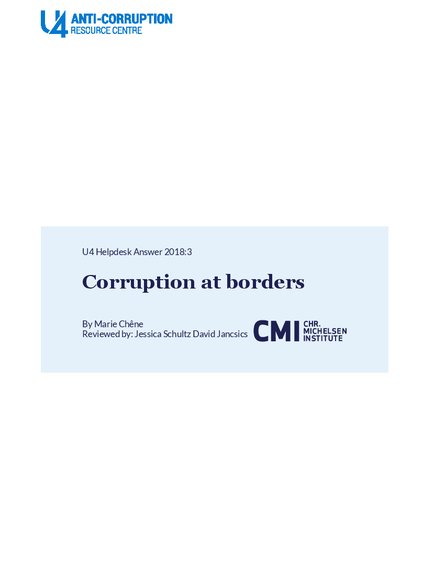
In spite of the important challenges posed by the circulation of goods and people across borders in the context of globalisation, interest in border related corruption is largely limited to the issue of corruption in customs. More research would be needed to assess the prevalence of border corruption in Africa, its specific forms as well as the social and economic effects.
There are a number of specificities that make border activities particularly vulnerable to corruption, including: poor external oversight; the level of autonomy and discretionary authority border officials enjoy; high tariffs and complex regulatory frameworks that provide traders with incentives to bribe; the pressure of organised crime networks; the inadequate salary and working conditions of border officials; and the specific organisational features of border protection agencies. Corruption at borders manifests itself through various forms, including petty bribery, bureaucratic corruption, misappropriation, organised crime related corruption and political corruption.
There is broad consensus in the literature that border corruption has a detrimental impact on shipping costs, trade, revenue collection, illegal migration as well as organised crime and security.